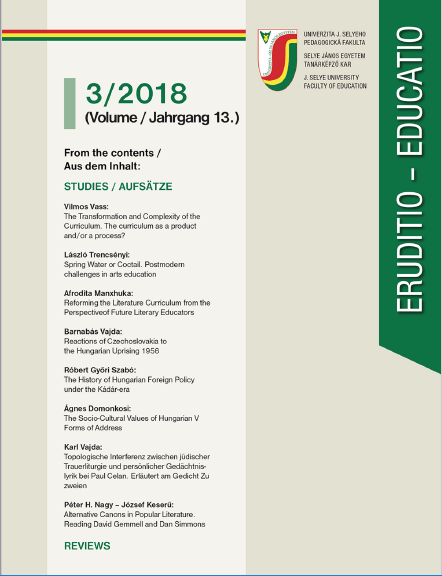The Socio-Cultural Values of Hungarian V Forms of Address
The Socio-Cultural Values of Hungarian V Forms of Address
Author(s): Ágnes DomonkosiSubject(s): Sociolinguistics
Published by: Pedagogická fakulta Univerzity J. Selyeho
Keywords: address forms; T and V forms; sociocultural value; metapragmatic evaluation
Summary/Abstract: The goal of this paper is to present and interpret the sociocultural value of Hungarian V pronouns and related devices on the basis of speakers’ metapragmatic evaluations. In addition to the binary division between T and V forms, V is further differentiated in Hungarian: there is a choice of pronoun (maga (V1) vs. ön (V2) – each co-occurring with 3rd person possessives and verbs), as well as a choice of these vs. zero pronoun (with 3rd person) (V3) vs. the structure involving tetszik (V4). Each of these variants has its characteristic sphere of use, social deictic role and stylistic value. Metapragmatic reflections suggest that according to informants, V forms are also well-suited to signalling degree of formality; the speaker’s evaluative attitude to her addressee, including respect; super- or subordinate status; degree of social proximity; processes of involvement with the increase or decrease of emotional distance; gender, age and social status of interlocutors.
Journal: Eruditio - Educatio
- Issue Year: 13/2018
- Issue No: 3
- Page Range: 61-72
- Page Count: 12
- Language: English

